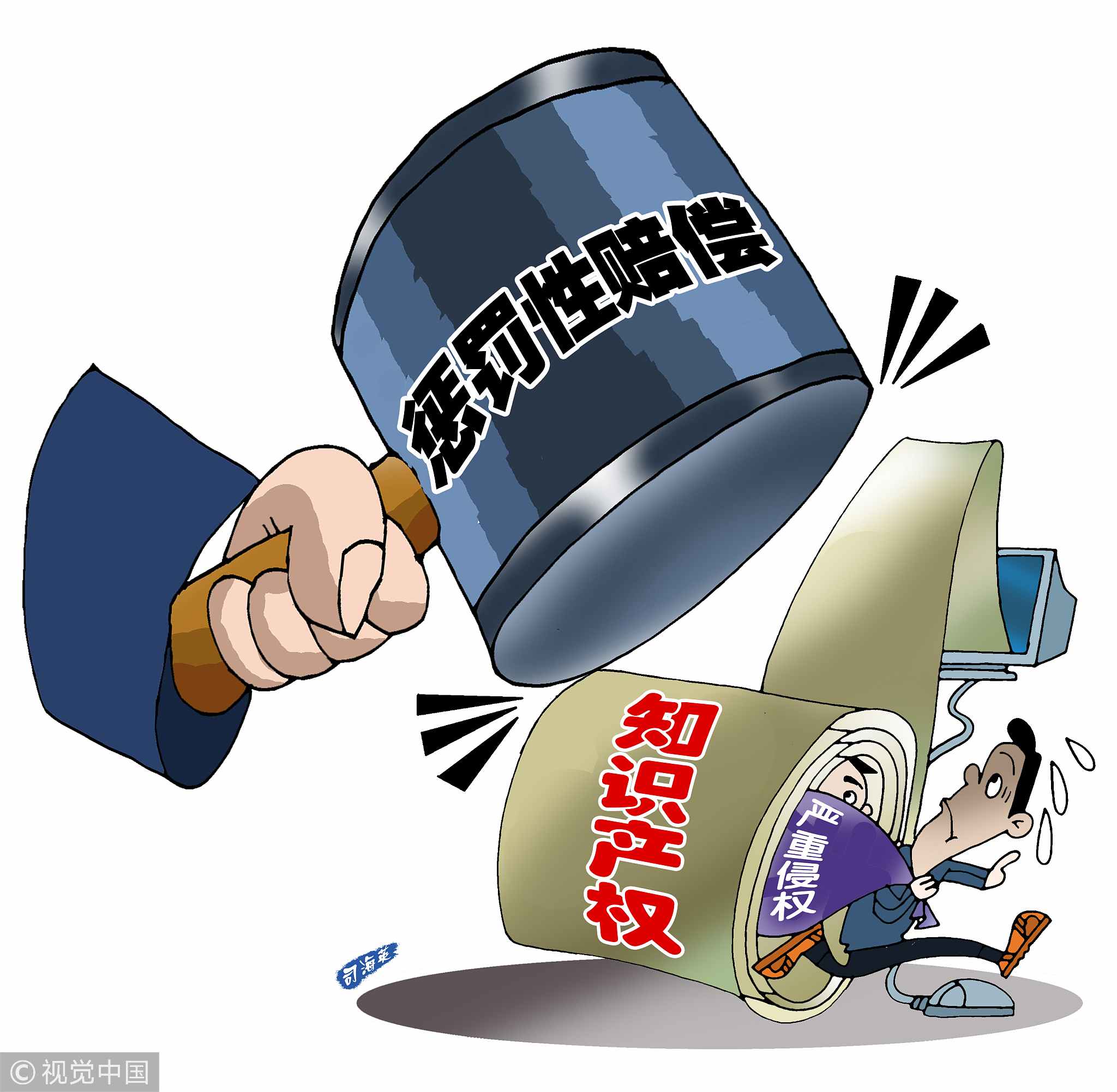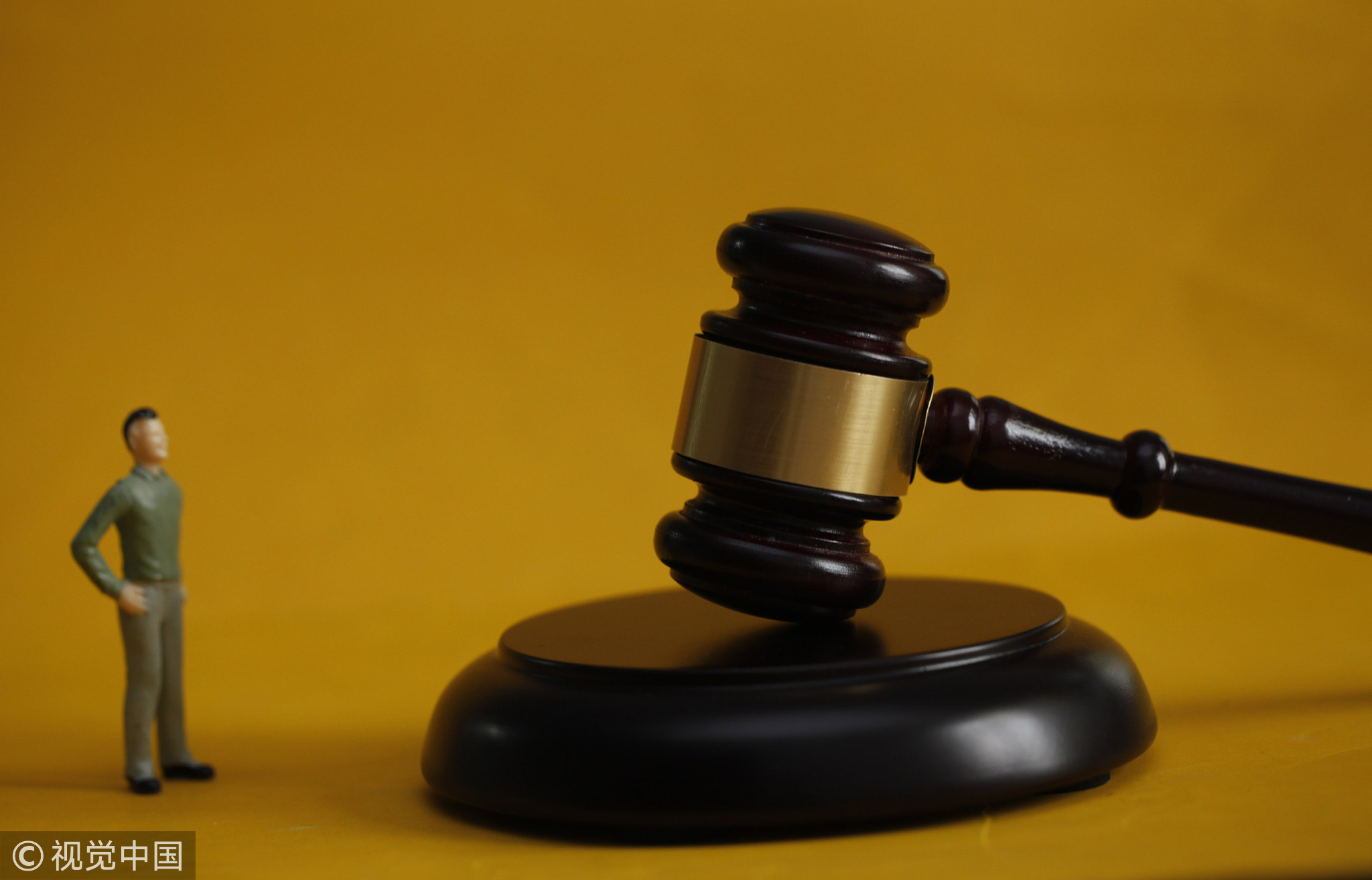
Opinions
10:07, 01-Jan-2019
China's specialized IPR court sheds new light on complex patent-related cases
Updated
09:52, 04-Jan-2019
Wang Leifan

Editor's note: Wang Leifan is an assistant professor at the Tianjin University Law School. The article reflects the expert's opinion, and not necessarily the views of CGTN.
The Standing Committee of the National People's Congress has authorized the Supreme People's Court (SPC) to establish a national-level Intellectual Property Rights Court for Appeal (IPRCA). The IPRCA, which serves as a permanent division under the SPC, opens in Beijing on Tuesday.
On December 29, 2018, names of 28 IPR judges were announced for the special bench.
IPR cases have been steadily increasing in China. As per the SPC's 2017 report, there were a total of 237,242 cases filed and 225,678 cases concluded, with an increase of 33.50 percent and 31.43 percent respectively, compared to 2016. Companies from 28 foreign states were involved in these cases.

VCG Photo
VCG Photo
Now, the role of the judiciary has become more significant in the protection of intellectual property rights in China along with promoting innovation to realize its long-term economic growth potential.
Before this, China has set up three intermediate IPR courts in Beijing, Shanghai and Guangzhou, and special IPR judicial divisions in dozens of Intermediate People's Courts in several provinces as a pilot project to enhance judicial services in handling IPR cases. These specialized IPR courts and divisions have proven to be a robust enforcement forum for both domestic and foreign IPR owners.
The purpose of setting up the IPRCA is to further unify the interpretation of Chinese IPR laws and regulations, better safeguard the legitimate intellectual property rights of all kinds of actors in the market and strengthen the judiciary's capacity in the implementation of the innovation-driven development national strategy.
The IPRCA is given exclusive jurisdiction over complex civil and administrative patent-related appeal cases, according to the SPC's Provisions on the Several Issues of the Intellectual Property Rights Court, effective on January 1, 2019.

The inaugural ceremony of the Xi'an Intellectual Property Rights Tribunal in Xi'an City, northwest China's Shaanxi Province, February 24, 2018. /VCG Photo
The inaugural ceremony of the Xi'an Intellectual Property Rights Tribunal in Xi'an City, northwest China's Shaanxi Province, February 24, 2018. /VCG Photo
This means that appeals against the first instance made by the Intermediate IPR Courts and the Intermediate People's Courts on complex patent-related cases will be filed directly to the IPRCA, instead of going through provincial Higher People's Courts under the existing law. Other cases could be heard by the IPRCA upon the discretion of the SPC.
IP rights protection is one of the most pressing issues facing the country, consistently triggering tensions between China and the United States. Since acceding to the WTO, China has improved its laws and regulations on IPR protection. The birth of the IPRCA represents a meaningful endeavor in the enforcement of Chinese IPR laws and regulations. The IPRCA is to "help prevent inconsistency of the application of laws, and improve the quality and efficiency of trials," said Luo Dongchuan, chief judge of the IPRCA.
Empirical studies have shown that courts could play a significant role in protecting IPR rights. Until now, more than 10 countries in the world have set up specialized IPR courts.

VCG Photo
VCG Photo
In addition to providing specialized judges, these courts usually apply special rules to enable more effective and speedy trial proceedings in IPR cases. It remains to be seen how the IPRCA works to fulfill its goal and truly attributes to the improvement of the IPR protection in China.
China's progress in IPR protection has been recognized by the international community. More foreign companies now choose to file their IPR cases in China, a positive signal of growing confidence in the country's judicial capacity. But the god and the devil are both in the details, and the details often take a long time to work out. In the case of IPR protection in China, the road ahead is still long and challenging.
After three years of operation of the IPRCA, the SPC shall report to the SCNPC on the implementation of the reform, according to the clauses in its authorization.
(If you want to contribute and have specific expertise, contact us at opinions@cgtn.com)

SITEMAP
Copyright © 2018 CGTN. Beijing ICP prepared NO.16065310-3
Copyright © 2018 CGTN. Beijing ICP prepared NO.16065310-3